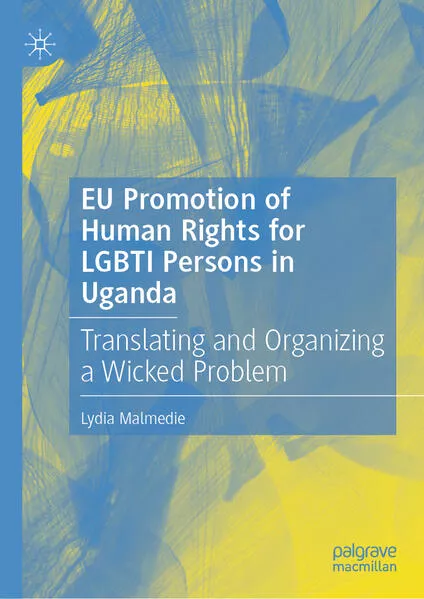
- Publikationen ca: 2
- Gefolgt von 1 Nutzern
- Fragen & Antworten
Malmedie, Lydia

EU Promotion of Human Rights for LGBTI Persons in Uganda
Examining the EU's promotion of human rights for lesbian, gay, bisexual, trans+ and intersex (LGBTI) persons in Uganda during the period of 2009 to 2017, this book investigates how a public administration defines and deals with a wicked problem. The empirical puzzle of how the topic of human rights for LGBTI persons, despite its highly contested nature, travelled between Brussels and Kampala, became codified in form of LGBTI Guidelines (2013) and institutionalized within EU foreign policy is addressed as one of translation and sensemaking.

EU Promotion of Human Rights for LGBTI Persons in Uganda
Examining the EU's promotion of human rights for lesbian, gay, bisexual, trans+ and intersex (LGBTI) persons in Uganda during the period of 2009 to 2017, this book investigates how a public administration defines and deals with a wicked problem. The empirical puzzle of how the topic of human rights for LGBTI persons, despite its highly contested nature, travelled between Brussels and Kampala, became codified in form of LGBTI Guidelines (2013) and institutionalized within EU foreign policy is addressed as one of translation and sensemaking.